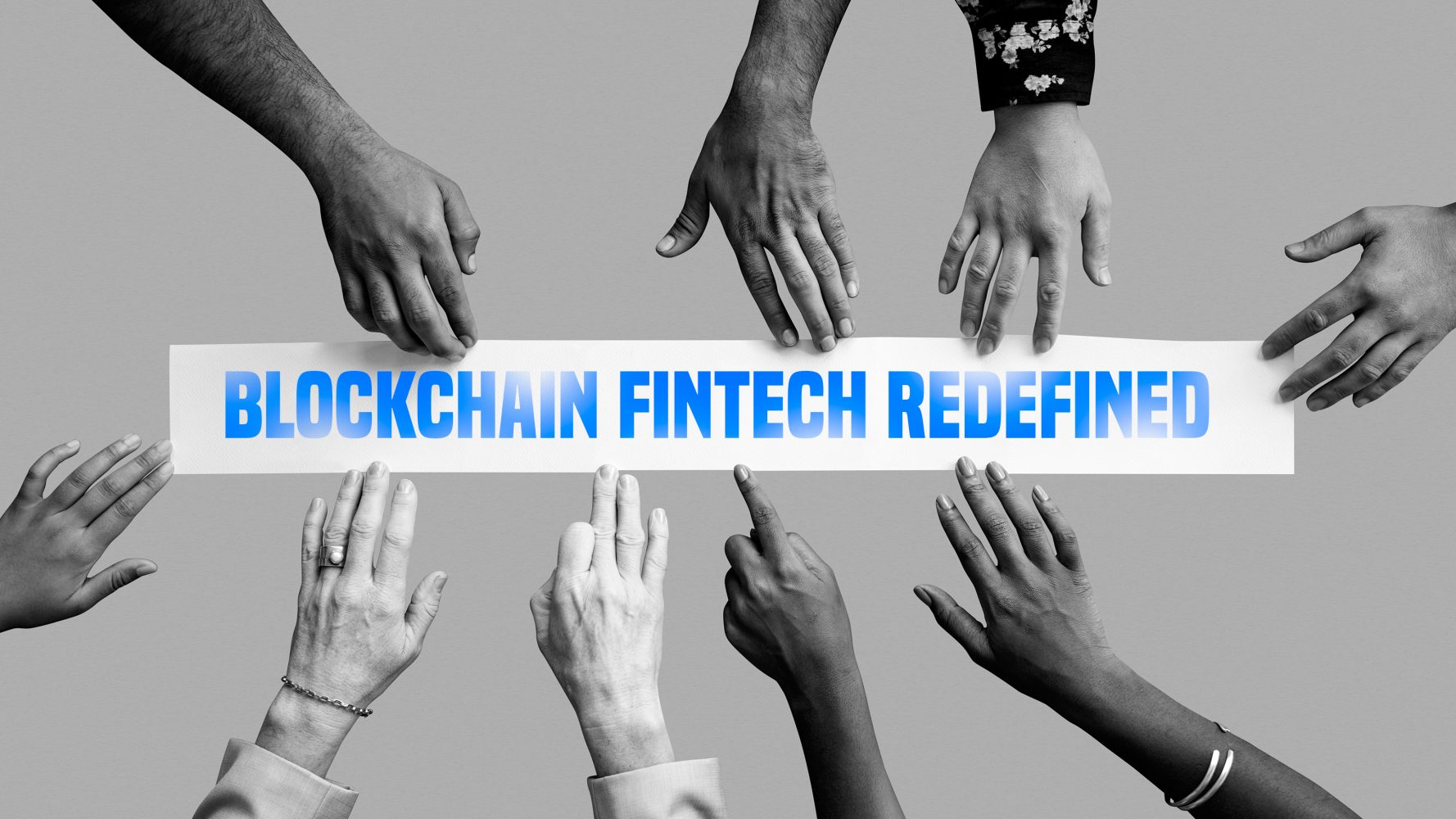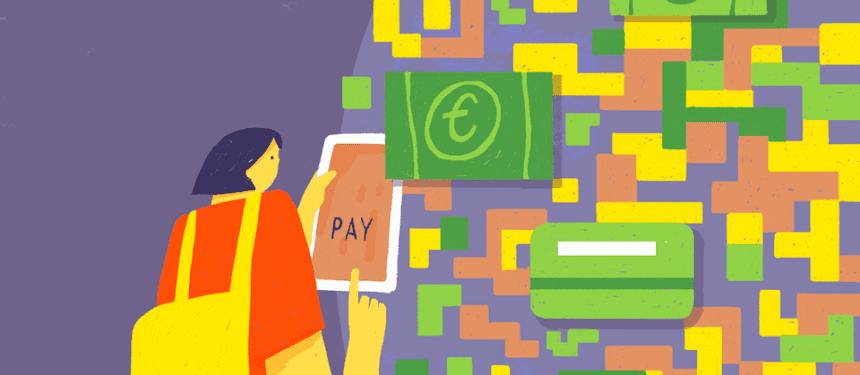Blockchain Fintech might be a better Financial inclusion scheme in Africa if well Propagated

Don’t get me wrong I am not talking about crypto-startups, but blockchain: the shared, immutable ledger that facilitates the process of recording transactions and tracking assets in a business network.
Despite Crypto being one of the main runners on the blockchain, we need education on crypto first. I have been looking at the wave of crypto since its inception and am now at the stage of no trust in it maybe before regaining trust for the last time.
Internet and smartphones share in Africa
According to Statista As of January 2022, Morocco had an internet penetration of approximately 84.1 percent, making it the country with the highest internet penetration in Africa. Seychelles ranked second, with 79 percent, followed by Egypt with approximately 72 percent.
As of August 2021, the majority of web traffic in leading digital markets in Africa originated from mobile devices in Sudan. Across the nation, 89 percent of web traffic was generated via smartphones and only 10 percent via PC devices. This is in part due to the fact that mobile connections are much cheaper and do not require the infrastructure that is needed for traditional desktop PCs with fixed-line internet connections.
Whilst also Feature phones make up a significant share of the mobile phone market in Africa, in contrast to many other regions around the world where smartphones make up almost the entire market. Of the 40 to 50 million mobile phones shipped in Africa per quarter, more than half are feature phones. In the first quarter of 2022, smartphone shipments amounted to 19.7 million units, while almost 22 million feature phones were shipped.
With this data, we can accumulatively state that Africa is an off-grid continent on the journey to penetration. For startups to leverage the new age, they need to do what the west can’t see in us: Access blockchain the USSD, STK, or Mobile Payment.

Web3, DeFi, and all future Jargon Startups
DeFi or Decentralized Finance is the next step in that evolution that utilizes l decentralized smart contracts. Several financial giants have also started investing in blockchain in finance R&D for their businesses. This reinforces the fact that finance and blockchain companies are not necessarily at odds, instead they can complement each other greatly, thus furthering success.
I have skipped way ahead of myself; Financial Inclusion should be the major game changer of this jargon in Africa.
Whilst all these are applicable and some are already doing better at implementing and pushing crypto more than the strength of what is behind, I have sought to find a few startups that have been notable and will prove a long-run change in the Fintech space as per the role of UBI and Financial Inclusivity in Africa in regards to Fintech.
Kotani Pay
Kotani Pay was built to bring financial instruments and services to those that do not have access to the Internet or have the capital and credit standing to open a bank account, thus increasing financial freedom.
These are enabled by provisions of the off-ramp from crypto using a simple interface that does not require internet connectivity or a bank account.
Kotani leverages the power of USSD, with a proven track record of viability and success in the past year, the Provision of loans according to their pilots, and more Partnerships that fit in with the SDG.
During Q2 of 2022, Mercy Corps Ventures launched a new pilot with SympliFi, Kwanza Tukule Foods Limited, UTU, and Kotani Pay, leveraging DeFi to power a Buy-Now-Pay-Later (BNPL) product for MSMEs, such as food vendors, in Nairobi, Kenya.
BNPL seems to be taking a big game changer in the provision of Assets in exchange for scheduled payments.
FONBNK
In 2019, bitcoinKE , wrote: Mobile airtime is seen as a boom sub-sector in Sub-Saharan Africa due to the increasing turnover of transactions and the formal nature of such transactions. When you add the massive gains in financial inclusion in developing countries brought on by mobile services, the opportunity for growth is even greater.
Later in 2022 FonBnk saw this opportunity and grasped it: FonBnk, a decentralized application (dApp) is one of these interesting solutions for how to get fiat currency onto a crypto wallet.
“If a user in Nigeria wants to convert 411 NGN MTN mobile airtime credit into $1.00 USD of ETH, a user can swap their credit for Fonbnk’s ERC20 token, $MIN, which can currently be used to mint USDC and then be traded for ETH on select exchanges.”
– Fonbnk
Since its inception in 2020, the company has had trading activity across all the leading Sub-Saharan African countries, generating:
- Over $5 million in Gross Airtime Transactions
- Nearly 100k transactions and
- Over 50k new wallets
Fonbnk has created a marketplace for the future of work using free mobile internet access to democratize participation; more easily enabling Sub-Saharan Africans to engage in the digital economy.
SWERRI
Swerri is a Decentralized Finance (DeFi) Protocol on the Binance Smart Chain Blockchain which combines the power of DeFi in crypto and the functionalities of a decentralized exchange.
With the latest statistics on the Credit Industry in Kenya, the number might plunge up to fix Inclusivity if the rates are Interestingly low, take for instance the recently launched Hustler Fund: The government said 5,191,542 people have since registered for the fund commissioned by President William Ruto on November 30, 2022, and took Ksh.1.4 Billion in Loans.
The App is on a slow rollout and also being based on a smartphone-enabled world, the solution of Provision of Loans in groups in a low-Interest form on the Blockchain is a fantastic idea that needs a push.
Swerri brags itself on the main feature of Swerri Circle, which enables a member to create a circle {SACCO or CHAMA}, leveraging on the power of community in DeFi with the aim to earn together.
In Conclusion
The Financial space revolves around a lot of things, and we need to see more of these Blockchain Fintechs worked on in more industries i.e eCommerce. The idea of trade is for the foundational buzz of crypto startups.
Talking about the future of blockchain in fintech, the adoption of technology, and the use of blockchain in fintech is increasing significantly. The blockchain-based fintech market is expected to reach a valuation of USD 6700.63 Mn by the year 2023, with a CAGR of 75.2% during the forecast period.
Founders should really go deep and leverage the strongest suits of Africa, sooner or later only bridges will be created and the move from web 2 the Giant to Web 3 the infant will be sustainable and interlinked.